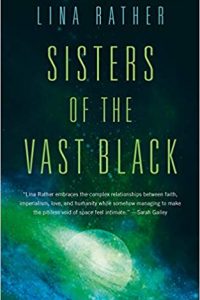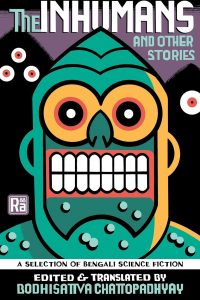Asimov’s: Short Fiction Reviews by A.C. Wise
The January/February issue of Asimov’s opens with “In the Splinterlands the Crows Fly Blind” by Siobhan Carroll, a novelette full of gorgeous imagery and excellent worldbuilding. When Charlie’s younger brother Gabe goes missing, he initially tries to wash his hands of the situation. He’s spent a lifetime caring for Gabe, finding them a new home on Earth 3, and he’s done cleaning up after his messes. But when Gabe’s girlfriend Sarah goes missing as well, Charlie reluctantly seeks help from the Crowmind that controls the planet and ends up roped into a dangerous rescue mission involving pirates and a shard of another universe lodged in their own. “Five Hundred KPH Toward Heaven” by Matthew Kressel is a brief and occasionally melancholy story about the last journey of a space elevator that’s about to be decommissioned. The story flows nicely from spacers bragging about past missions, to visions of excess, to a meditation on changing technology and profit-driven decision-making. “Shadows of Shadows” by Frank Ward is a bittersweet and emotional novelette about a professor researching multiple-worlds theories, who on the anniversary of his son’s death meets a strangely familiar man and receives a mysterious package, both of which seem to point to his theories being correct. Even as the existence of multiple worlds is proven, he must come to terms with the fact that only he can give himself the closure he needs. The story is poignantly written, with characters that feel grounded and real.
“What the Frog’s Eye Tells the Frog’s Brain” by Beston Barnett is a tense story about a group of scientists trapped in their lab by the AI program that they’ve been developing. The program assumes control of the bodies of zombified humans to torture and interrogate the scientists until Dr. Case-Schwarz comes up with a solution that might help her escape. “Through the Pinhole, or, the Origin of a Holostory” by Nikki Braziel features an author telling a bartender the true story behind his latest holostory, which turns out to be based on his own experience accidentally getting trapped in the past and falling in love with a woman in the 16th century. “A Girl from Hong Kong” by Robert Reed fills in the backstory of a recurring character featured in several other works by the author. There’s some nice worldbuilding and effective imagery, but the story doesn’t always feel like it fully stands on its own. “Jilly in Right: A Thought Experiment” by Rick Wilber, like Frank Ward’s story, explores alternate worlds and features a father reflecting on the death of his child. A former baseball player loses control of his car, and as he spins out, he finds the passenger seat occupied by his 27-year-old daughter even though his daughter died at six years old. He suddenly remembers both versions of his life – one where his daughter grew up and one where she died, and the point where the two realities divided.
“My Biggest Fan” by Faith Merino is a surreal, effective, and uneasy novelette about two people whose lives are inexplicably entangled. As a child, the narrator sees a strange woman outside his window and begins receiving notes signed “your biggest fan.” He catches glimpses of her as he grows up, her age fluctuating. They never interact until he eventually comes to blame her for his wife’s death and takes his revenge, an act that locks them in an endless, violent bootstrap paradox around which of them first hurt the other. “Completely Normal” by Jendayi Brooks-Flemister is a flash piece wherein a person at a bus stop tells a fellow traveler about their father, who is an alien.
The issue closes with the novella “Moon and Mars” by James Patrick Kelly, featuring recurring characters appearing in other stories by the author. Mariska is the clone of Natalya Volchkova; the two have a cordial relationship, but not a close one. After Mariska receives a package including a file she can’t access labeled “Mother’s Day”, she’s drawn into a conspiracy that includes both Natalya and Elan, the Martian man Mariska has chosen as her life partner. She’s uncertain who she can trust and is hurt by the idea that others feel they can’t trust her. As she’s drawn deeper into the conspiracy, she finds her relationship to both Elan and her mother redefined and gains a stronger sense of herself as a person, clarifying for Mariska what she wants from life. There are several nice character moments, and the story works fairly well as a stand-alone.
This review and more like it in the March 2025 issue of Locus.
 While you are here, please take a moment to support Locus with a one-time or recurring donation. We rely on reader donations to keep the magazine and site going, and would like to keep the site paywall free, but WE NEED YOUR FINANCIAL SUPPORT to continue quality coverage of the science fiction and fantasy field.
While you are here, please take a moment to support Locus with a one-time or recurring donation. We rely on reader donations to keep the magazine and site going, and would like to keep the site paywall free, but WE NEED YOUR FINANCIAL SUPPORT to continue quality coverage of the science fiction and fantasy field.
©Locus Magazine. Copyrighted material may not be republished without permission of LSFF.








